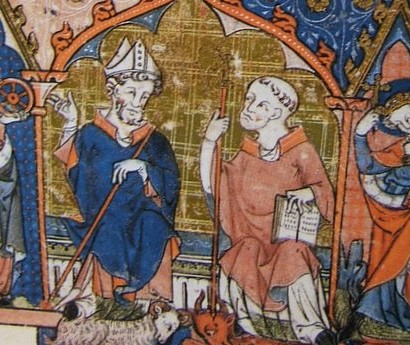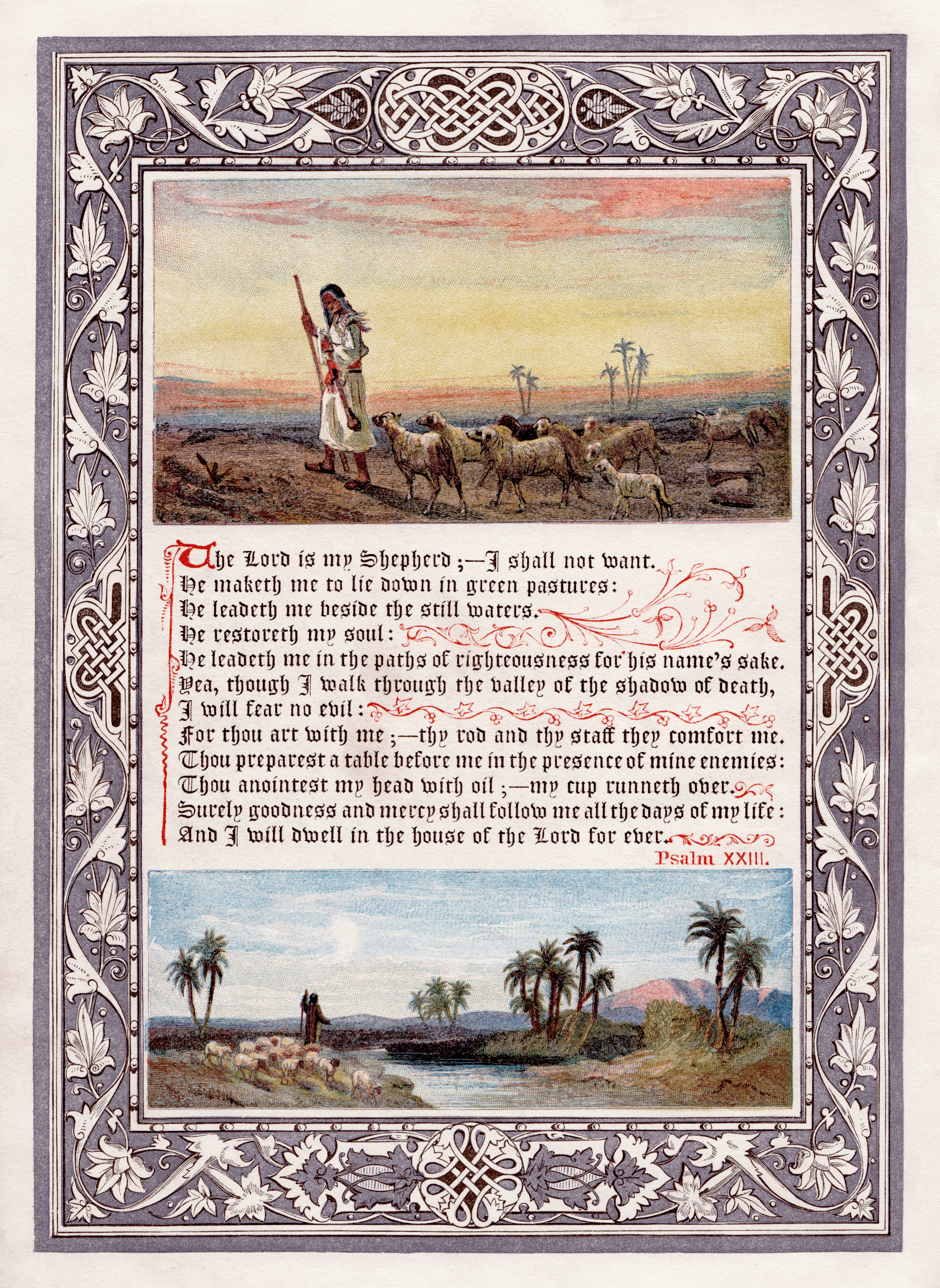|
James Risdon Bennett
Sir James Risdon Bennett (29 September 1809 – 24 December 1891) was an English physician. Life The eldest son of the James Bennett, a nonconformist minister, he was born at Romsey on 29 September 1809. He received his education at Rotherham College, Yorkshire, of which his father became principal; and at the age of fifteen was apprenticed to Thomas Waterhouse of Sheffield. In 1830, he went to Paris, and then to Edinburgh, where he graduated M.D. in 1833. In autumn 1833, Bennett accompanied Lord Beverley to Rome, and spent two or three summers in his company and that of Lord Aberdeen. On his return to England in 1837, he became physician to the Aldersgate Street dispensary, and lectured on medicine at the Charing Cross Hospital medical school, and also at Grainger's school of medicine. In 1843, Bennett was appointed assistant physician to St. Thomas's Hospital, and in 1849 full physician. On the foundation of the City of London Hospital for Diseases of the Chest in 1848 ... [...More Info...] [...Related Items...] OR: [Wikipedia] [Google] [Baidu] |
Romsey
Romsey ( ) is a town in the Test Valley district of Hampshire, England. The town is situated northwest of Southampton, southwest of Winchester and southeast of Salisbury. It sits on the outskirts of the New Forest, just over northeast of its eastern edge. The population of Romsey was 14,768 at the 2011 census. Romsey is one of the principal towns in the Test Valley Borough and lies on the River Test, which is known for fly fishing, predominantly trout. In 2019, the town centre underwent substantial remodelling, removing the roundabout around the statue of Lord Palmerston, and creating a pedestrianised area. Romsey was home to the 17th-century philosopher and economist William Petty and the 19th-century British prime minister, Lord Palmerston, whose statue has stood in the town centre since 1857. The town was also home to the 20th-century naval officer and statesman Louis Mountbatten, 1st Earl Mountbatten of Burma, who lived at Broadlands. Romsey Abbey, the largest pari ... [...More Info...] [...Related Items...] OR: [Wikipedia] [Google] [Baidu] |
Finsbury Square
Finsbury Square is a square in Finsbury in central London which includes a six-rink grass bowling green. It was developed in 1777 on the site of a previous area of green space to the north of the City of London known as Finsbury Fields, in the parish of St Luke's, Islington, St Luke's and near Moorfields. It is sited on the east side of City Road, opposite the east side of Bunhill Fields. It is approximately 200m north of Moorgate station, 300m north-west of Liverpool Street station and 400m south of Old Street station. Nearby locations are Finsbury Circus and Finsbury Pavement. Named after it, but several miles away, are Finsbury Park and Finsbury Park (area), its eponymous neighbourhood. The centre of the square includes an underground NCP Car Park and two disused petrol stations, also owned by NCP for above-ground commercial parking. Finsbury Square is served by bus routes London Buses route 21, 21, London Buses route 43, 43, London Buses route 141, 141 and London Buses route 2 ... [...More Info...] [...Related Items...] OR: [Wikipedia] [Google] [Baidu] |
19th-century English Medical Doctors
The 19th century began on 1 January 1801 (represented by the Roman numerals MDCCCI), and ended on 31 December 1900 (MCM). It was the 9th century of the 2nd millennium. It was characterized by vast social upheaval. Slavery was abolished in much of Europe and the Americas. The First Industrial Revolution, though it began in the late 18th century, expanded beyond its British homeland for the first time during the 19th century, particularly remaking the economies and societies of the Low Countries, France, the Rhineland, Northern Italy, and the Northeastern United States. A few decades later, the Second Industrial Revolution led to ever more massive urbanization and much higher levels of productivity, profit, and prosperity, a pattern that continued into the 20th century. The Catholic Church, in response to the growing influence and power of modernism, secularism and materialism, formed the First Vatican Council in the late 19th century to deal with such problems and confirm ce ... [...More Info...] [...Related Items...] OR: [Wikipedia] [Google] [Baidu] |
1891 Deaths
Events January * January 1 ** A strike of 500 Hungarian steel workers occurs; 3,000 men are out of work as a consequence. **Germany takes formal possession of its new African territories. * January 4 – The Earl of Zetland issues a declaration regarding the famine in the western counties of Ireland. * January 5 **The Australian shearers' strike, that leads indirectly to the foundation of the Australian Labor Party, begins. **A fight between the United States and Lakotas breaks out near Pine Ridge agency. **A fight between railway strikers and police breaks out at Motherwell, Scotland. * January 7 ** General Miles' forces surround the Lakota in the Pine Ridge Reservation. ** The Inter-American Monetary Commission meets in Washington DC. * January 9 – The great shoe strike in Rochester, New York is called off. * January 10 – in France, the Irish Nationalist leaders hold a conference at Boulogne. The French government promptly takes loan. * J ... [...More Info...] [...Related Items...] OR: [Wikipedia] [Google] [Baidu] |
1809 Births
Events January–March * January 5 – The Treaty of the Dardanelles, between the United Kingdom of Great Britain and Ireland and the Ottoman Empire, is concluded. * January 10 – Peninsular War – French Marshal Jean Lannes begins the Second Siege of Zaragoza, Siege of Zaragoza. * January 14 – The Apodaca–Canning treaty is signed in London between Britain and Spain * January 16 – Peninsular War – Battle of Corunna in Galicia (Spain): The British (under General Sir John Moore (British Army officer), John Moore, who is killed) resist an attempt by the French (under Jean-de-Dieu Soult, Marshal Soult) to prevent them embarking. * February 3 – The Illinois Territory is created from the western part of the Indiana Territory. * February 11 – Robert Fulton patents the steamboat in the United States. * February 12 – Charles Darwin and Abraham Lincoln are born. * February 17 – Miami University (Ohio) is established ( ... [...More Info...] [...Related Items...] OR: [Wikipedia] [Google] [Baidu] |
Worcester, England
Worcester ( ) is a cathedral city in Worcestershire, England, of which it is the county town. It is south-west of Birmingham, north of Gloucester and north-east of Hereford. The population was 103,872 in the 2021 census. The River Severn flanks the western side of the city centre, overlooked by Worcester Cathedral. Worcester is the home of Royal Worcester, Royal Worcester Porcelain, Lea & Perrins (makers of traditional Worcestershire sauce), the University of Worcester, and ''Berrow's Worcester Journal'', claimed as the world's oldest newspaper. The composer Edward Elgar (1857–1934) grew up in the city. The Battle of Worcester in 1651 was the final battle of the English Civil War, during which Oliver Cromwell's New Model Army defeated Charles II of England, King Charles II's Cavalier, Royalists. History Early history The trade route past Worcester, later part of the Roman roads in Britain, Roman Ryknild Street, dates from Neolithic times. It commanded a ford crossing o ... [...More Info...] [...Related Items...] OR: [Wikipedia] [Google] [Baidu] |
Religious Tract Society
The Religious Tract Society was a British evangelical Christian organization founded in 1799 and known for publishing a variety of popular religious and quasi-religious texts in the 19th century. The society engaged in charity as well as commercial enterprise, publishing books and periodicals for profit. Periodicals published by the RTS included '' Boy's Own Paper'', '' Girl's Own Paper'' and '' The Leisure Hour''. In 1935, it merged into what is today the United Society for Christian Literature. Formation and early history The idea for the society came from the Congregationalist minister George Burder, who raised the idea while meeting with the London Missionary Society (founded in 1795) in May 1799. It was formally established on 10 May 1799, having a treasurer, a secretary, and ten committee members, with members required to " ubscribehalf a guinea or upwards annually". Its initial membership was drawn from the London Missionary Society, and included: * David Bogue, Indep ... [...More Info...] [...Related Items...] OR: [Wikipedia] [Google] [Baidu] |
Wilhelm Kramer
Wilhelm Kramer (17 December 1801 in Halberstadt, Kingdom of Prussia – 7 December 1876 in Berlin, German Empire) was a German otologist. Biography He studied medicine at the universities of University of Göttingen, Göttingen and University of Berlin, Berlin, receiving his doctorate from the latter institution in 1823. He furthered his education in Vienna and Paris, then returned to Berlin, where he served as an assistant to psychiatrist Anton Ludwig Ernst Horn. Shortly afterwards, he opened a private medical practice, in which he specialized in the treatment of ear diseases. He was among the first physicians to devote his attention exclusively to the science of otology. He is credited as being the first to use catheterization and auscultation in determining conditions of the middle ear. [...More Info...] [...Related Items...] OR: [Wikipedia] [Google] [Baidu] |
President Of The Royal College Of Physicians
The president of the Royal College of Physicians (RCP) is the elected head of the Royal College of Physicians of England, which was founded by letters patent from King Henry VIII in 1518. The president is elected annually late in the year. Presidents of the Royal College of Physicians *1518–1524 Thomas Linacre *1526 Thomas Bentley (physician), Thomas Bentley *1527–1528 Richard Bartlot *1529–1530 Thomas Bentley (physician), Thomas Bentley *1531 Richard Bartlot *1541–1543 Edward Wotton (zoologist), Edward Wotton *1544 John Clement (physician), John Clement *1545–1546 William Freeman (physician), William Freeman *1547 John Burgess (physician), John Burgess *1548 Richard Bartlot *1549–1550 John Fryer (physician, died 1563), John Fryer *1551–1552 *1553–1554 George Owen (physician), George Owen *1555–1560 John Caius *1561 Richard Master, Richard Masters *1562–1563 John Caius *1564–1567 *1568 Thomas Francis (16th-century physic ... [...More Info...] [...Related Items...] OR: [Wikipedia] [Google] [Baidu] |






